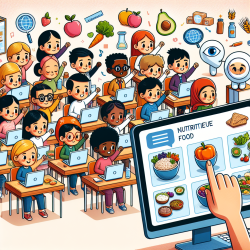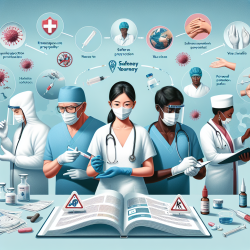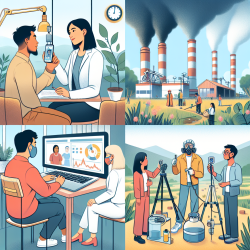The increasing number of refugees and migrants worldwide has brought to light the urgent need for specialized medical education frameworks that address their unique healthcare needs. A recent study titled "An undergraduate medical education framework for refugee and migrant health: Curriculum development and conceptual approaches" provides a comprehensive guide for developing such frameworks. This blog explores how practitioners can enhance their skills by implementing the outcomes of this research or by delving deeper into related studies.
The Importance of a Specialized Curriculum
The global landscape of healthcare is rapidly evolving, with forced migration becoming a significant concern. This shift necessitates a curriculum that equips medical professionals with the skills to address the complex health issues faced by refugees and migrants. The study highlights the importance of integrating cross-cultural communication, understanding social determinants of health, and addressing barriers to care within medical education.
Key Components of the Framework
- Values and Principles: The framework emphasizes social justice, sustainability, reciprocity, respect, honesty, humility, responsiveness, equity, and solidarity. These values guide the curriculum's development and implementation.
- Competency-Based Learning Objectives: These objectives focus on enhancing communication skills across cultures, understanding barriers to care, and advocating for health equity.
- Curriculum Delivery Methods: The framework suggests using community service learning, experiential learning opportunities, and partnerships with resettlement organizations to provide practical experience.
Enhancing Practitioner Skills
The proposed curriculum framework offers several pathways for practitioners to improve their skills:
- Cultural Competence: By participating in cross-cultural communication training, practitioners can better understand and address the diverse needs of refugee and migrant populations.
- Advocacy: The framework encourages practitioners to become advocates for their patients by understanding systemic barriers and working towards equitable healthcare solutions.
- Lifelong Learning: Engaging in continuous education through webinars, conferences, and publications can help practitioners stay informed about best practices in refugee and migrant health.
The Role of Community Partnerships
A significant aspect of the framework is its emphasis on community partnerships. By collaborating with local resettlement agencies and community organizations, practitioners can gain valuable insights into the challenges faced by refugees and migrants. These partnerships also provide opportunities for hands-on learning experiences that are crucial for developing cultural competence.
The Path Forward: Encouraging Further Research
The study serves as a foundation for developing effective medical education frameworks but also highlights areas where further research is needed. Practitioners are encouraged to contribute to this growing field by conducting studies on curriculum evaluation methods or exploring innovative teaching approaches. Such research will not only enhance individual skills but also improve healthcare delivery for refugee and migrant populations globally.










